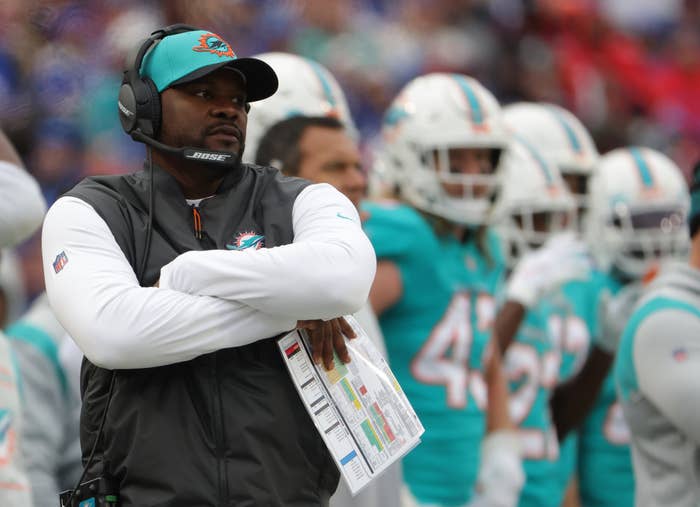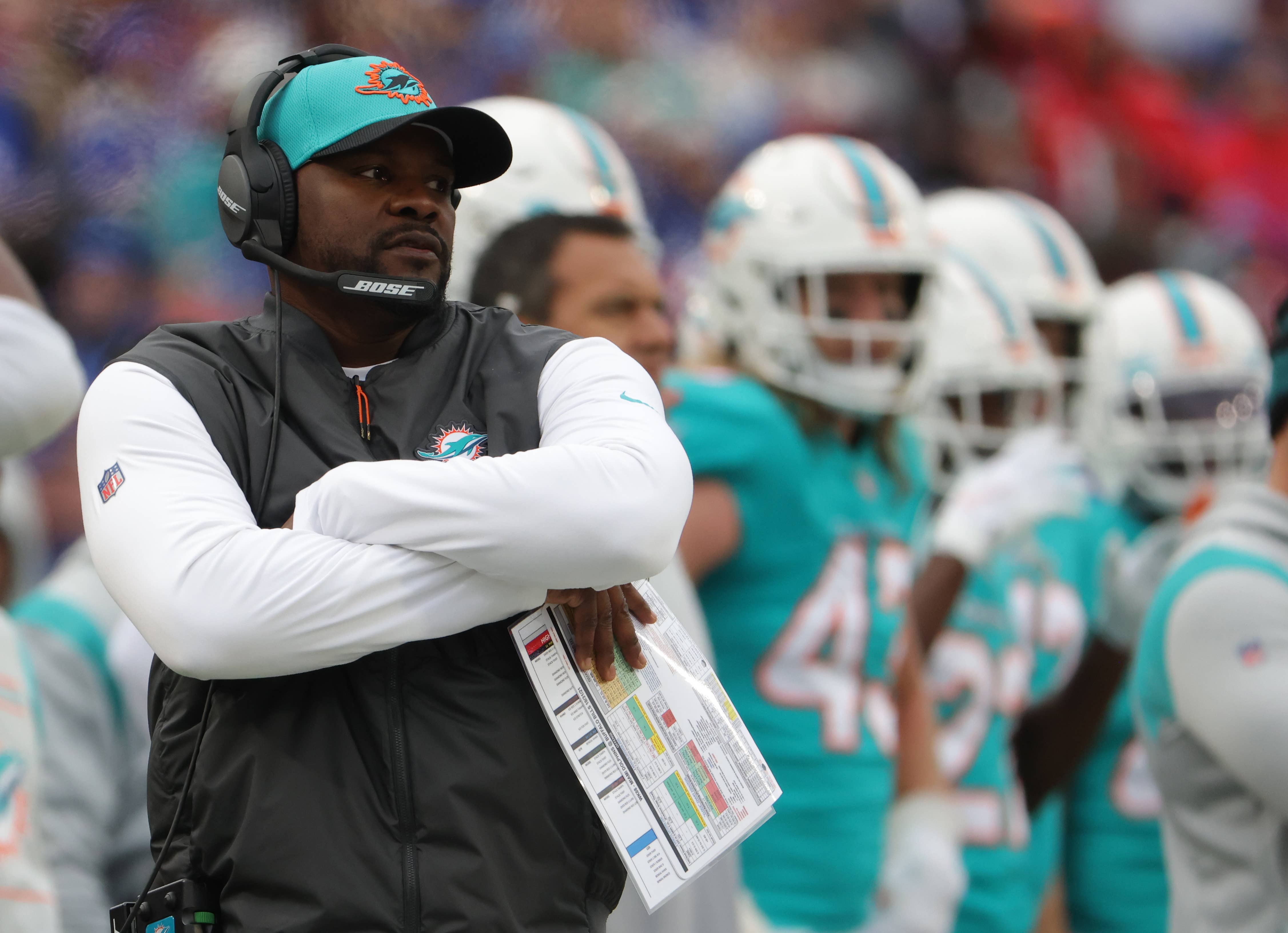
“Everybody wants to be Black until it’s time to be Black.”
That’s the first thing that came to mind when I read the lawsuit filed Tuesday by former Dolphins head coach Brian Flores. He’s suing the National Football League—as well as the Dolphins, Giants, and Broncos—for discrimination in their hiring practices that basically boils down to yet another unfortunate episode of hypocrisy.
Only two of the NFL’s 32 teams feature a minority owner and this group has yet again shown there is a demarcation in the league. Black bodies are useful for entertainment, but have no use in meaningful leadership positions within the league.
I dove into the 58-page class-action lawsuit Flores filed that alleges the Giants merely interviewed Flores as a formality to satisfy the NFL’s Rooney Rule—a rule stipulating teams must interview a minority candidate for open coach and executive positions. The rule, which was created in good faith back in 2003, has clearly become nothing but a farce 20 years later.
“When you sit at a table with five people who are interviewing you, you can tell who is asking questions, who is into the interview, who is not necessarily in the right state in that moment,” Flores said Wednesday during an appearance on ESPN’s Get Up. “But even then, I put my best foot forward and showed why I was a good candidate for that job. I’m always going to do that. But I certainly did not feel like I was taken seriously, and I was just there as a Rooney Rule [candidate].”
Time and time again, Black coaches are subjected to interviews that are merely designed to check a box rather than discover actual talent—as Flores alleges in his lawsuit with text messages from Bill Belichick pointing to that unfortunate reality. Approximately 70 percent of current NFL players are Black, but as currently constituted, the league only employs one Black head coach—Mike Tomlin of the Pittsburgh Steelers. The NFL’s annual coaching carousel often only gives lip service to the idea of hiring qualified Black candidates, while less qualified white candidates too frequently end up with the job.
Sports in many ways are a microcosm of society—the NFL maybe in particular. And no matter how many of its end zones say “End Racism,” the actions of the National Football League and its hiring practices continue to say the opposite.
Over the past two seasons, there have been 16 head coaching openings in the NFL, and only one Black coach was hired. Last month, after one season in Houston, David Culley was fired by the Texans despite coaching the entire campaign without his franchise quarterback, who is currently mired in his own complicated and disturbing controversy. Ironically, all signs point to Culley’s replacement being former NFL journeyman quarterback Josh McCown, who has zero NFL head coaching experience.
Much like America itself, the National Football League boasts about its own exceptionalism, highlighting the virtues of the game and the players that become Immortal through the sport. Yet it continuously ignores its own demons that have eroded too many lives of its own workforce.
Whether it’s “race-norming” during the concussion settlement that allowed for retired Black players to be denied medical benefits through discriminatory medical practices or the borderline, if not overt, line of racist questioning asked of prospects during the pre-draft process, the league is littered with examples of discriminatory behavior towards Black people throughout its history.
A lot of the onus for change will fall upon commissioner Roger Goodell and the executives who inhabit the league office in New York. However, that’s probably a bit misguided. Goodell has seemed intent, within the scope of his powers, to address the diversity issues in the NFL’s hiring practices. Within his own office, former players, specifically Black players, work in high-ranking positions—names like Troy Vincent Sr. and Derrick Brooks. Notably, the NFL operations departments employ nine Black staffers out of 17 members.
In fact, Vincent, the executive vice president of football operations for the NFL, conceded to the glaring “double standard” that Black coaches face in the NFL. Flores outlined a similar statement in his lawsuit. It feels eerily similar to the collusion suit filed by Colin Kaepernick back in 2019—he claimed that NFL teams banded together to keep him out of the league after he began kneeling during the national anthem in protest. The NFL strongly denied any culpability in that case, but ultimately settled out of court with Kaepernick for undisclosed millions.
It’s incredibly disheartening that those two individuals, at the top of their profession, felt the only way to enact change was to become martyrs for the greater good. While I applaud the bravery and the fortitude of Flores and Kaepernick, I’m saddened by the extremity both felt was necessary. A nuclear option—the result of feeling like there was nothing else to be done—has left them ostracized within a sport they loved and robbed them of the opportunity to accumulate the generational wealth the NFL can afford Black men. It’s not fair that the same sport that people of their background helped build into the world’s most profitable sports league hasn’t lived up to its end of the bargain.
Sports in many ways are a microcosm of society—the NFL maybe in particular. And no matter how many of its end zones say “End Racism,” the actions of the National Football League and its hiring practices continue to say the opposite.

